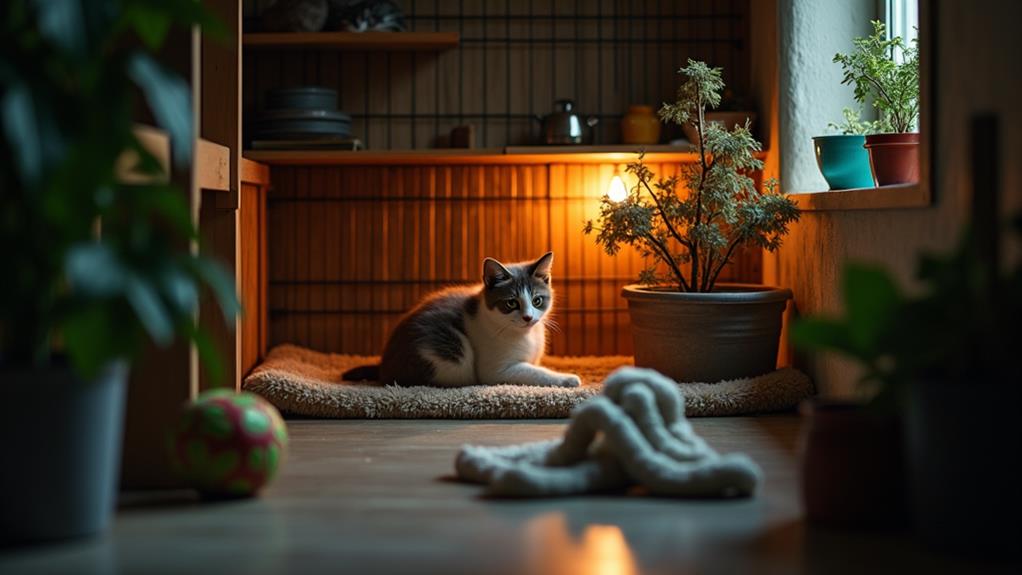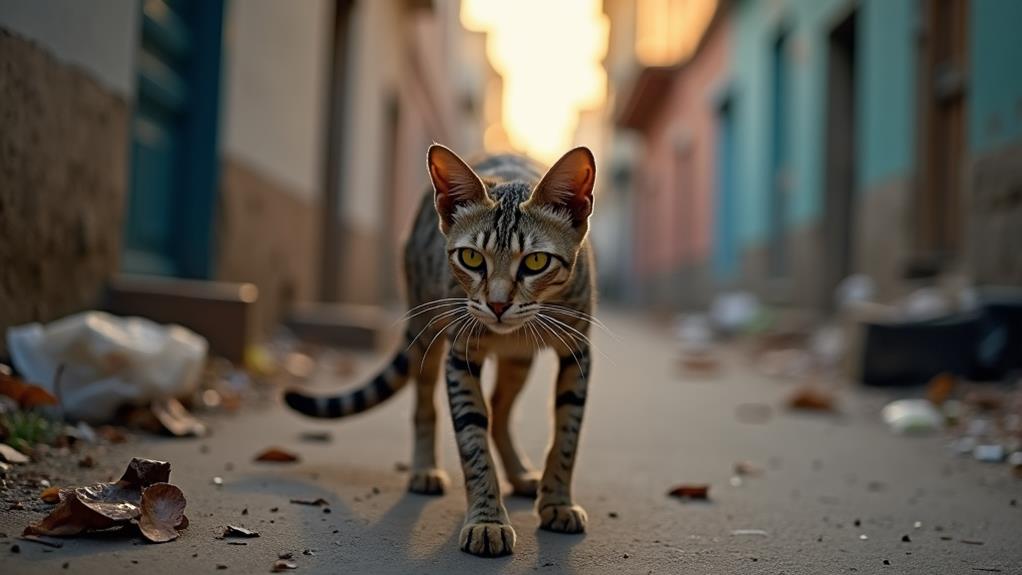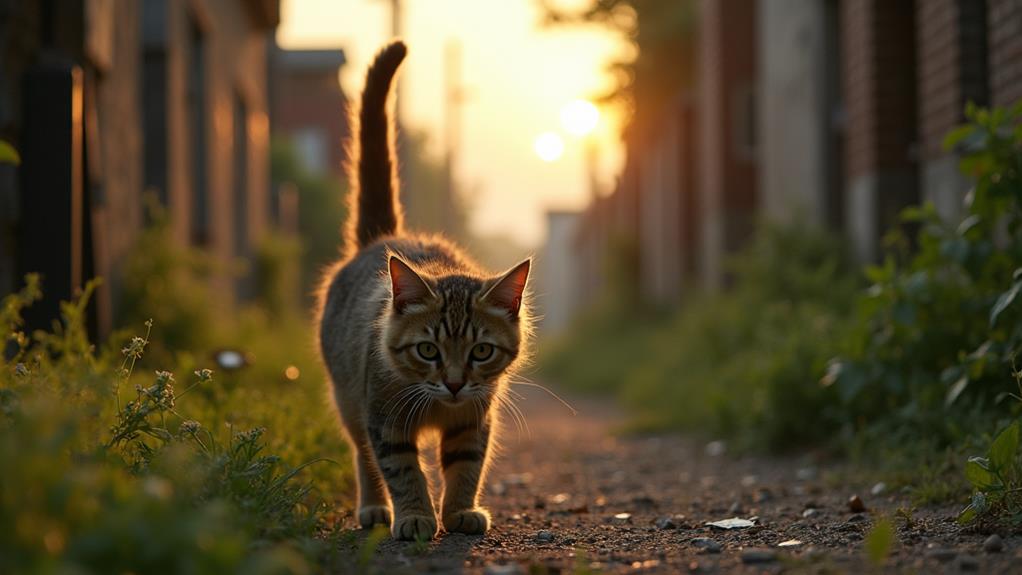Where to Get Free Cat Food for Feral Cats: Resources and Programs
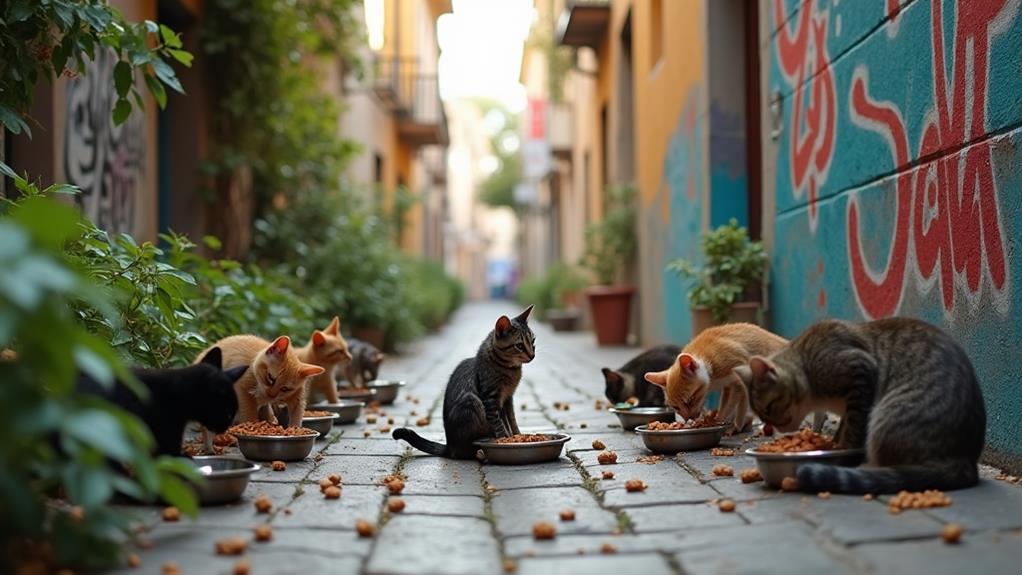
To get free cat food for feral cats, start by checking local animal shelters and pet food pantries. Many shelters have pet food banks from donations and surplus stock, often collaborating with community organizations. Community food banks may also help; however, availability can vary, so ask locally. Online resources like the Humane Society offer listings of these programs. Partnering with local stores and clinics might give access to extra or discounted cat food. Don't forget about volunteer-run initiatives and food drives. With many avenues to investigate, you're just scratching the surface of what's available for feral cat caregivers.
Local Animal Shelters
Local animal shelters often play a crucial role in supporting those who care for feral cats. They understand the challenges you face and offer resources to help. Many shelters have pet food banks specifically stocked with cat food, making it easier for you to feed those feral cats in your community. They frequently receive surplus cat food donations from grocery stores and pet supply retailers, which are distributed to those in need. This means you can often find the help you need by checking in with your local shelter.
In addition, some shelters organize food drives or events aimed at collecting cat food. By participating in these initiatives, you not only help support a worthy cause but also have the opportunity to access the collected food for your feral cats. Moreover, many shelters collaborate with other local organizations to extend their reach and provide even more resources to help you. They may have specific programs tailored to aid feral cat caretakers, so it's a good idea to contact nearby shelters. Ask them about available resources or any ongoing programs that might benefit you and your efforts to care for feral cats.
Community Food Banks
In relation to feeding feral cats, community food banks can be indispensable resources. They often provide pet food assistance, including cat food, to families in need, indirectly supporting feral cat populations. Many local food banks collaborate with organizations like Feeding Pets of the Homeless to guarantee pet owners can access food resources for their animals. This makes it easier for those caring for feral cats to get the supplies they need. Here are some steps to make the most of these resources:
- Check Local Listings: Contact local food banks in your area to inquire about their pet food assistance programs. Policies and availability of pet food can vary, so it's essential to confirm details directly.
- Collaborations: Look for food banks partnered with community outreach programs. These partnerships can offer special events or emergency initiatives to distribute cat food more effectively.
- Inventory Allocations: Some food banks reserve a portion of their inventory specifically for pet food. When you visit, ask if they have cat food available for distribution.
- Stay Informed: Keep up with local events and initiatives involving food banks and pet food assistance to make sure you're aware of any new opportunities.
These steps can help you access important resources for feeding feral cats in your community.
Pet Food Pantries
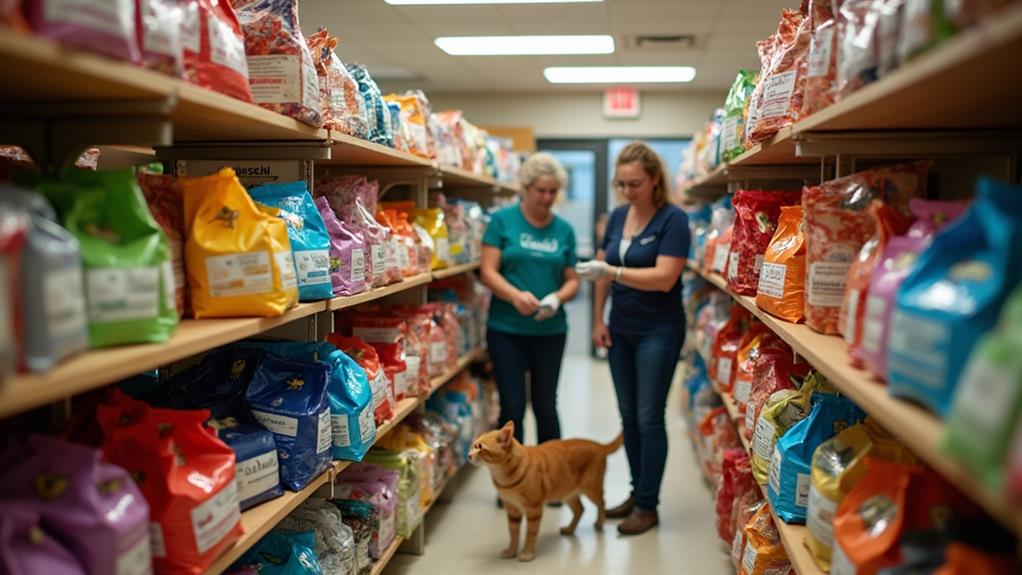
Beyond community food banks, pet food pantries offer another valuable resource for those supporting feral cat populations. These pantries provide free cat food assistance, guaranteeing that feral cats and kittens don't go hungry. Many pet food pantries, like Best Buddies Pet Pantry and No Animal Left Unfed, are dedicated to helping families in need, particularly during financial difficulties. By doing so, they offer essential resources to defend the well-being of these animals.
Pet food pantries often collaborate with community organizations and local animal shelters to extend their reach. This network of support guarantees that food is efficiently distributed to where it's needed most. For instance, South Shore Pet Food Pantry focuses on aiding local pet owners struggling financially, providing them with supplies necessary for proper pet care.
Thankful Paws in Chicago Ridge, IL, exemplifies how these pantries improve the ability of low-income households to care for their animals. Likewise, the Pet Pantry of Northwest Louisiana assists pet owners by alleviating the financial burden of pet care. Through such efforts, pet food pantries play a significant role in supporting feral cat caretakers, guaranteeing these animals receive the nourishment they need.
Online Resources
In relation to finding support for feral cat caretakers, online resources offer a wealth of information and assistance. By tapping into these platforms, you can uncover different avenues to secure free cat food and other resources. Local animal shelters often maintain online listings of pet food banks that specifically help feral cat caretakers. The Humane Society is another excellent resource, providing an extensive list of organizations that offer free pet food. This can include local animal initiatives aimed at supporting feral cat populations.
Here are some effective online resources to investigate:
- Humane Society Website: Use their list to find organizations dedicated to providing free cat food and other assistance for feral cats.
- Feeding Pets of the Homeless: Check their online resources for programs that might extend to feral cats, offering food and veterinary care.
- Community Programs: Platforms like Meals on Wheels can indirectly aid feral cat caretakers through initiatives like WALOP, which provide pet food supplies.
- Online Platforms and Social Media: Utilize these to connect with local pet food drives or community efforts focused on providing for feral cats.
Partnering Stores and Clinics
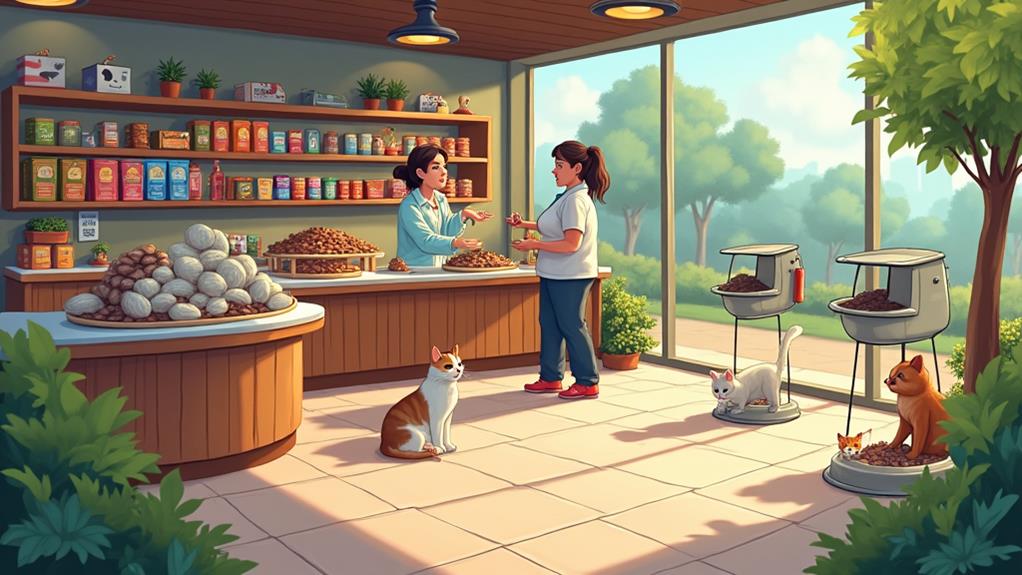
When you're exploring ways to support feral cats beyond online resources, partnering with local stores and clinics can be incredibly beneficial. Local grocery and pet supply stores often have programs that donate surplus or dented cat food to animal shelters and community cat initiatives. By forming partnerships with these stores, you can secure a steady supply of food for feral cats. Furthermore, veterinary clinics frequently have excess cat food from donations or sample products. These clinics might be more than willing to share this surplus with individuals dedicated to caring for feral cat populations.
Connecting with local animal shelters is another effective strategy. Many shelters have food banks specifically for pet owners in need, including those feeding feral cats. These food banks can be an invaluable resource in your efforts. In addition, communities often organize pet food drives in collaboration with local businesses. These drives are a great way to gather food specifically for feral cats, ensuring they have the nutrition they need.
Don't underestimate the power of neighborhood social media platforms. They can help you connect with local stores or clinics keen to contribute cat food, strengthening your community-based support network for feral cat care.
Volunteer and Community Efforts
Volunteering in your community can be a rewarding way to support feral cat populations and improve their quality of life. Many local communities offer volunteer opportunities to engage in initiatives like Trap-Neuter-Return (TNR) programs. These programs rely heavily on community engagement, requiring collective responsibility to guarantee their success. By participating, you can help organize crucial food drives or partner with local animal shelters to distribute free cat food to feral cats in need.
Consider these ways to get involved:
- Join a TNR Program: Collaborate with local animal welfare organizations to learn about TNR efforts and how you can help manage feral cat populations.
- Organize Food Drives: Work with local shelters and community members to gather and distribute donations of cat food.
- Participate in Educational Programs: Attend or help organize events that educate the public about feral cat care and the importance of TNR programs.
- Leverage Social Media: Use online platforms to engage neighbors, build community support, and share resources for feeding and caring for feral cats.

